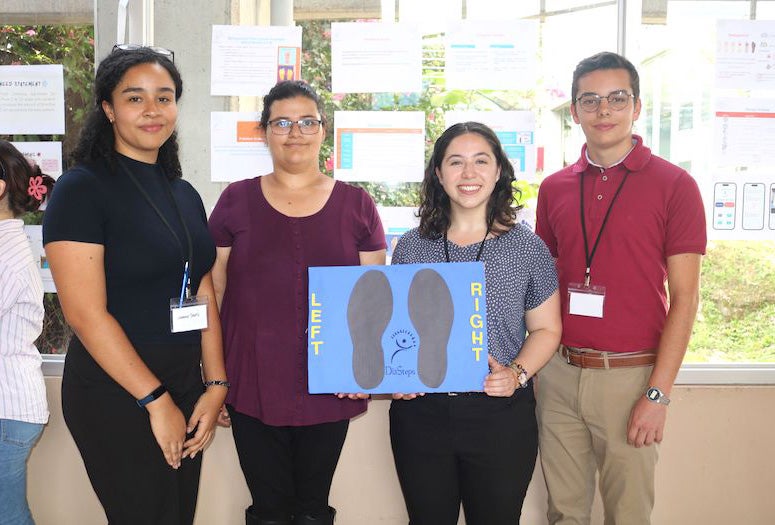By Patrick Kurp
Science writer for the George R. Brown School of Engineering
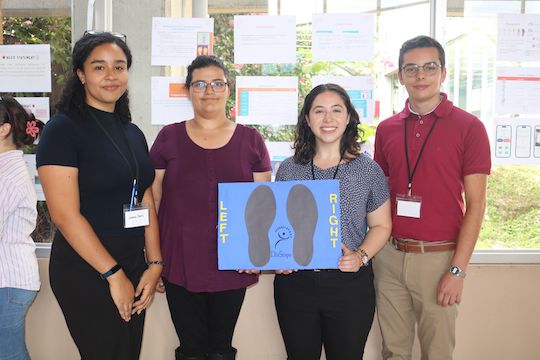
(Photo courtesy of GMI/Rice University)
Sarah Blau, a Rice University professional master’s student in bioengineering, is wrapping up her summer working in Costa Rica’s oldest children’s hospital, the Nacional de Niños.
Since 2015, some 400 undergraduate and graduate students from the U.S. and Costa Rica have spent summers in that country as part of Rice’s Global Medical Innovation (GMI) program.
“My mentor is a neurologist, and I spend most of my time observing as he conducts outpatient visits or rounds on patients in the hospital,” said Blau, who earned her bachelor’s degree in biomedical engineering from Duke. “Many of them have epilepsy or a neuromuscular disorder such as Duchenne muscular dystrophy.”
The GMI program is a one-year, full-time, non-thesis professional master of bioengineering degree that combines engineering, business and clinical training focused on solving real-world medical needs. The students work with more than 50 professionals in the medical technology industry in Costa Rica.
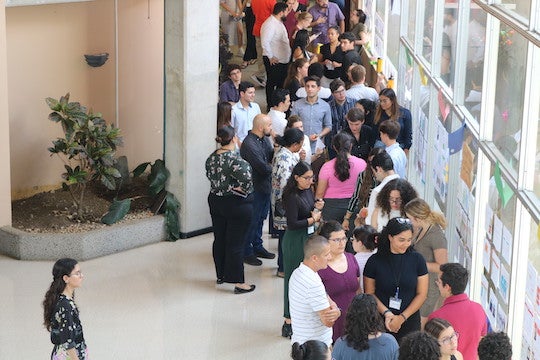
“GMI is not only training Rice students but is having an impact on medical innovation in Costa Rica. Professors from Rice and Costa Rican universities are teaching the students how to develop medical technologies using the needs of local hospitals,” said Matthew Wettergreen, associate teaching professor of bioengineering at Rice and director of the GMI program.
When Blau returns in August from her 10 weeks in Costa Rica, she will have two semesters of classes and projects remaining and expects to earn her master’s degree next spring.
“Last week I shadowed an electrophysiology tech who was performing nerve conduction studies, and this week I had the chance to observe heart surgeries,” Blau said. “I saw a stent being placed in the heart of a two-month-old boy to correct an issue that was preventing blood from flowing to his lungs and receiving oxygen.”
When not observing, Blau works on a project to modify an ultrasound headset to improve the accuracy in long-term patient use. The device can be used if a patient is at risk of stroke.
“Because the headset is uncomfortable, my mentor hardly ever uses it on very young patients,” she said. “My goal for the project is to distribute the headset’s weight more evenly across the head so that it’s comfortable enough to be worn for several hours.”
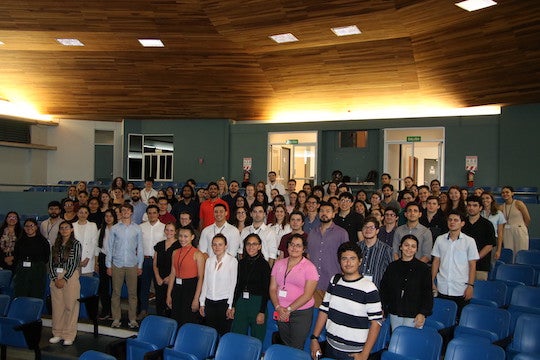
The summer program began with two introductions to health care in Costa Rica. The first, a clinical needs-finding boot camp, is held in collaboration with the Costa Rican Social Security Fund.
“We visit public hospitals and clinics, mostly in low- to mid-resource settings, to identify needs that can be addressed with engineering solutions,” Wettergreen said. “This involves Rice students, undergraduates from the University of Costa Rica and graduate students from the Tecnológico de Costa Rica.”
The needs-finding portion of the program is led by Rice bioengineering lecturer Casey Howard, who instructs students in methods of observation in a clinical setting and converting observations into needs statements.
The next component is the medical innovation boot camp, focused on training Costa Rican students to be a part of that country’s medical technology industry.
“Students are taught the process of developing innovative medical solutions while considering such factors as disease state fundamentals, market analysis, developing a strategic focus and then how to deliver a technical pitch to judges,” Wettergreen said.
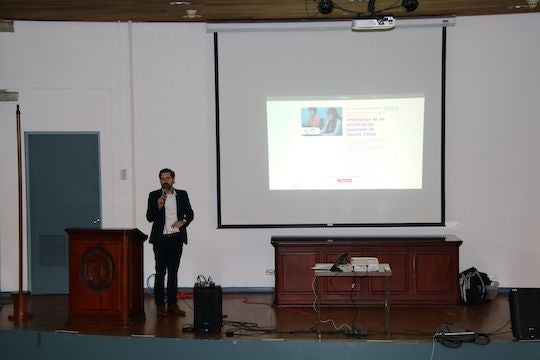
This summer’s boot camp was held at the University of Costa Rica and attracted 80 students from that country’s universities and 20 from Rice, the largest attendance since the event was launched in 2015. The program culminates with the internship program. Students can work with such medical device companies as Boston Scientific, Abbott, Establishment Labs, Confluent Medical and Meditek.
“This gives students an opportunity to work in manufacturing facilities in various roles, including quality control, manufacturing and process development. They also have the opportunity to conduct clinical observations at the Nacional de Niños, where Sarah is working,” Wettergreen said.
Since 2015, almost 50 Rice graduate students have spent their summers in Costa Rica on internships.
“Since I haven't done any clinical shadowing before, I've been absorbing as much as I can while I'm here,” Blau said. “Overall I’ve really enjoyed my time at Hospital Nacional de Niños.”
- Image Downloads:
-
https://news-network.rice.edu/news/files/2023/07/GMI_CostaRica_MW_1.jpg
CAPTION: Matthew Wettergreen, associate teaching professor of bioengineering at Rice and director of the GMI program, presents onstage during a program event this summer. (Photo courtesy of GMI/Rice University)
https://news-network.rice.edu/news/files/2023/07/GMI_CostaRica_studends.jpg
CAPTION: Joanna Davis (from left), Verónica Naredo, Sarah Blau and Manuel Otárola.
(Photo courtesy of GMI/Rice University)
https://news-network.rice.edu/news/files/2023/07/GMI_CostaRica_presentations.jpg
CAPTION: Student project presentation session. (Photo courtesy of GMI/Rice University)
https://news-network.rice.edu/news/files/2023/07/GMI_CostaRica_participants.jpg
CAPTION: Participants in Rice University’s Global Medical Innovation program. (Photo courtesy of GMI/Rice University) - Links:
-
Oshman Engineering Design Kitchen: https://oedk.rice.edu/about
Global Medical Innovation: http://gmi.rice.edu/George R. Brown School of Engineering: https://engineering.rice.edu
- About Rice:
-
Located on a 300-acre forested campus in Houston, Rice University is consistently ranked among the nation’s top 20 universities by U.S. News & World Report. Rice has highly respected schools of Architecture, Business, Continuing Studies, Engineering, Humanities, Music, Natural Sciences and Social Sciences and is home to the Baker Institute for Public Policy. With 4,552 undergraduates and 3,998 graduate students, Rice’s undergraduate student-to-faculty ratio is just under 6-to-1. Its residential college system builds close-knit communities and lifelong friendships, just one reason why Rice is ranked No. 1 for lots of race/class interaction and No. 4 for quality of life by the Princeton Review. Rice is also rated as a best value among private universities by Kiplinger’s Personal Finance.

